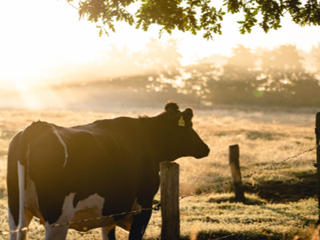
An agricultural mortgage is a type of commercial mortgage that’s specifically designed for farms, agricultural businesses and equestrian properties where residential mortgages are inadequate. It’s used in situations where the applicant wants to buy a farm or agricultural enterprise outright, or perhaps where they want to buy additional buildings for an existing business, or to extend/improve their current properties or associated land. In other cases, an agricultural mortgage can be used to refinance an existing deal – much like with traditional residential remortgages – or to buy out a partner or family member.
Alongside these broader classifications are more niche mortgage requirements where the applicant wants to diversify, a particularly common feature in recent years given the increased cost pressures many agricultural business owners are facing. Examples may include a mortgage to finance the opening of a farm shop, nursery or holiday let, and it’s this huge range of potential requirements that makes this kind of mortgage so specialist – and why the right advice and support is key.
An agricultural mortgage usually requires a large deposit (most providers won’t offer a mortgage above 80% loan-to-value) and minimum loan amounts start from around £25,000, though there may not be an upper limit – it all depends on the individual circumstances. Both fixed and variable interest rates are available, and terms can typically last up to 30 years. Repayment options can include capital and interest-only, while monthly, quarterly, annual or bi-annual repayments can often be arranged.
Agricultural properties often have a “positive covenant ”, stipulating that the land or property must be used for the storage of livestock, and because of this you will usually need to find a specialist mortgage lender that is comfortable with this being in place.
If you are new to the agricultural sector, haven’t been trading for long or have circumstances that make your mortgage higher risk, lenders may also ask you for a personal guarantee.
Compare commercial mortgages rates for agricultural businesses.
The first step is speaking to a specialist broker who will be able to help identify the right lenders and deals for you – this is especially important if you have a covenant on your property or land. They’ll have the expertise necessary to help you navigate the complex agricultural mortgage market, helping you determine the type of loan you need and the providers who may be able to offer it.
Then it all comes down to determining the criteria and whether or not you’ll meet it, with the amount you’ll be able to borrow differing accordingly.
You’ll need to pass through the more typical affordability hoops, too, such as your income and expenditure, your credit score and the size of the deposit you’re able to put up. Your experience in the industry will also be factored into the calculations, particularly when it comes to deciding the amount of loan or the interest rate that you’ll be offered, and in the case of a new venture, your business plan and projected income will also be thoroughly vetted.
This is where a commercial mortgage broker can come in. They'll be able to take your unique situation and put you in touch with the provider that can best meet your needs, so start the process by speaking to a specialist agricultural mortgage broker today.
The best way to make sure you get the best possible commercial mortgage rate is to ensure you pass all affordability criteria with flying colours, as lenders will assess risk – and therefore the rate offered – on an individual basis. Make sure that your credit score and that of your business is up to scratch, and remember that the larger the deposit, the lower the rate tends to be. It’s also vital to get an accurate, up-to-date valuation of your property, with an experienced agricultural surveyor usually required to be involved.
Agricultural mortgages are offered by smaller, specialist providers and some better-known names too . A Barclays agricultural mortgage is probably the most well-known, alongside high street names like Clydesdale and Yorkshire Banks and even Santander, with these mortgages particularly suited to those wanting the familiarity of a high street provider. However, they’re by no means the only options, and it may be better to consider the full range of providers available to determine which lender offers the better deal.
Disclaimer: This information is intended solely to provide guidance and is not financial advice. Moneyfacts will not be liable for any loss arising from your use or reliance on this information. If you are in any doubt, Moneyfacts recommends you obtain independent financial advice.